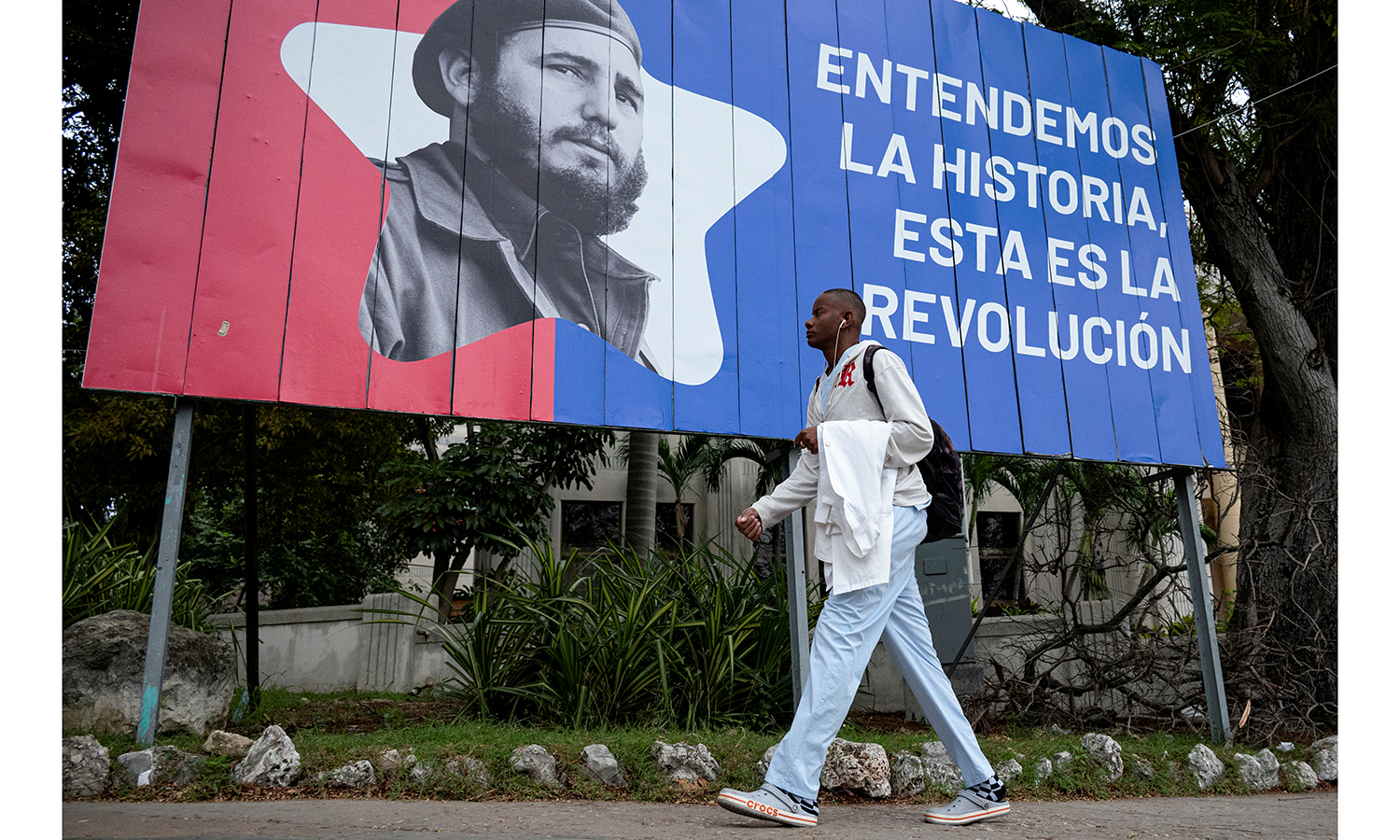Cuba, South Korea forge diplomatic relations

A doctor walks past a poster of Cuban late leader Fidel Castro in Havana on February 2, 2024. PHOTO/AFP
What you need to know:
- It will remain to be seen whether the latest diplomatic dalliance in Central America will sway Washington to loosen its chokehold on Havana which has exacerbated the country’s economic woes, including inflation nearing 30 percent.
South Korea and Cuba on Wednesday made a surprise announcement of beginning diplomatic relations, a move that will put latter’s Cold War allies, North Korea, on tenterhooks.
The development was announced by ambassadors of the two countries to the UN in New York.
“The establishment of diplomatic relations with Cuba, the only country in Central and South America and the Caribbean that we did not have ties with, is an important turning point in strengthening our diplomacy with South America,” the South Korean Ministry of Foreign Affairs said in a statement.
Having agreed in principle to kick-start relations, this will be followed by reciprocal opening of diplomatic missions in each other’s capital.
Cuba, which has been sparring with the West for decades, has enjoyed cordial relations with North Korea since 1960 – height of the Cold War that pitted US against the Unions of the Soviet Socialist Republics (USSR) – a year after the Cuban Revolution, after which Fidel Castro took office.
The two countries, key allies of the former USSR, now Russia, maintained relations over the years through thick and thin, especially being targeted by United States and its European allies, collectively, often referred to as the West.
Cuba and North Korea, alongside Venezuela, Iran, Syria, and Myanmar, and their key ally Russia, are among the world’s most sanctioned countries by the West.
It will remain to be seen whether the latest diplomatic dalliance in Central America will sway Washington to loosen its chokehold on Havana which has exacerbated the country’s economic woes, including inflation nearing 30 percent.
At the just concluded Non-Alignment Movement (NAM) summit in Kampala, the 121-states descried Washington’s continued sanctioning of Cuba and Venezuela as a means of forcing them to kowtow to the neo-liberal dogma.
North Korea, which is increasingly isolated from the rest of the world, is yet to respond to the development. According to an August 2016 paper titled “DPRK Diplomatic Relations”, only 24 countries have embassies in Pyongyang out of the 164 countries that have established formal diplomatic relations with the hermit state.
The Havana-Pyongyang dalliance, provoked spotlight particularly in October 1962 during the Cuban missile crisis—considered one of the most dangerous US-USSR nuclear skirmish that nearly mutated into a full scale war confrontation—when North Korea announced readiness to send troops to fight alongside USSR in the Caribbean Sea in America’s backward.
Castro’s— who served as president until 2008—visit to Pyongyang and meetings with the founder of the North Korean state, Kim Il Sung and his son, Kim Jong-il, elicited global attention alike.
South Korean media, Korea JoongAng Daily, reported that Cuba’s economic needs may have also played part in its decision to establish relations with Seoul.
“Through this establishment of diplomatic ties, we expect we can establish an institutional foundation to expand economic cooperation between the two countries and support the advancement of Korean companies, as well as provide systematic consular assistance to Korean citizens visiting Cuba,” the outlet quoted Lim Soo-suk, spokesman of the Foreign Ministry in Seoul.
Around 14,000 South Koreans visited Cuba every year before the Covid-19 pandemic, according to the ministry.
Korea JoongAng Daily further reported that Seoul exported $14m (Shs43b) in goods to Cuba and imported some $7m (Shs26b) in 2022.




